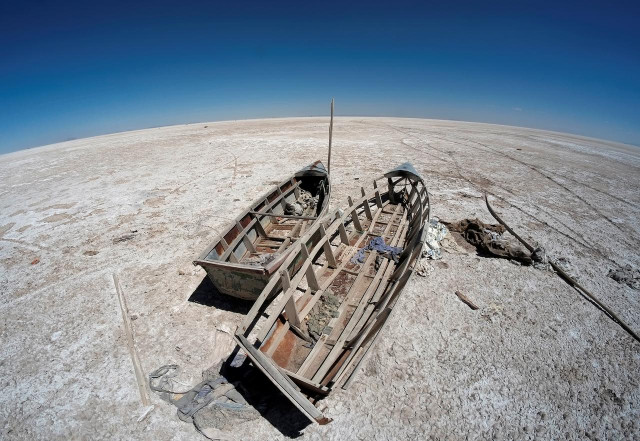Climate change a ‘pandemic’ in making
Experts complain few take environmental change seriously, urge building resilience

Representational image. PHOTO: REUTERS
This was stated by climate change experts during an online webinar on the ‘State of Climate Governance Post Covid-19’. The seminar had been organized by the Sustainable Development Policy Institute on Tuesday.
SDPI Executive Director Dr Abid Qaiyum Suleri said that Covid-19 is a ‘black swan’ event — which has low probability but very high impact.
“We were warned that a novel virus may threaten mankind, but no one took it seriously and now the planet is suffering,” he maintained.
Learning from the impacts of Covid-19, he stressed that we must also take climate change as a real and serious threat and to prepare for it.
“In a post-corona world, the world should continue spending on building resilience against climate change, otherwise the future will be very bleak,” he said.
“One stitch in time always saves nine.”
Dr Saleemul Haq, the director at the International Centre for Climate Change and Development in Bangladesh, said that the global target of 1.5 degrees appears to be less and less achievable with every passing day. He explained that countries around the world are not doing enough to control it and that Covid-19 is just a smaller and accelerated version of the impacts of climate change.
“We talk about reducing the steepness of the curve for Covid-19, the same applies for climate change, in a bigger way,” he said.
Stressing the need to act before the situation spirals, Dr Haq said that global leaders have an important role to play in decision-making regarding their openness to listen to climate science.
Climate Analytics Science Germany’s Regional Climate Scientist Dr Fahad Saeed said the world is currently releasing gigatonnes of emissions per year which should be cut in half by 2030, otherwise, we will reach the end of the carbon budget within 10-15 years.
He stressed the need to achieve zero emissions by 2050.
Aisha Khan, the executive director of Civil Society Coalition for Climate Change (CSCCC), said that it is unfortunate that the pandemic is now stretching on.
“Climate change needs multilateral decision-making. We need to bring people together to discuss the real issue,” she said, adding, “Climate Change may be a slow-burner but the impacts will be harsher than the pandemic.”
When the time comes, Aisha said that every country will try to use the resources they have for themselves and become more inward-looking. Hence, there will be a moral question for them to face at the end of the day.
In this way, she said that it reflects on the type of governance required and the role citizens have to play.
Published in The Express Tribune, April 8th, 2020.



















COMMENTS
Comments are moderated and generally will be posted if they are on-topic and not abusive.
For more information, please see our Comments FAQ